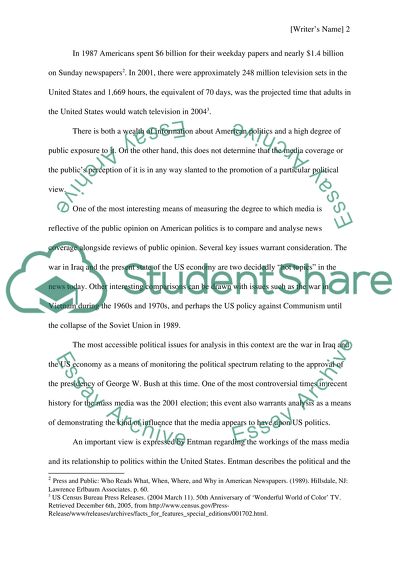Cite this document
(“Influence of the Media in American Politics Essay”, n.d.)
Retrieved from https://studentshare.org/politics/1527840-mass-media-and-politics
Retrieved from https://studentshare.org/politics/1527840-mass-media-and-politics
(Influence of the Media in American Politics Essay)
https://studentshare.org/politics/1527840-mass-media-and-politics.
https://studentshare.org/politics/1527840-mass-media-and-politics.
“Influence of the Media in American Politics Essay”, n.d. https://studentshare.org/politics/1527840-mass-media-and-politics.


